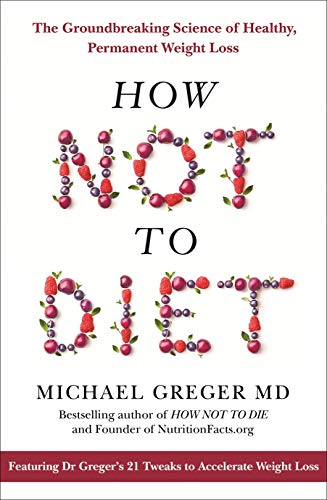What do you think?
Rate this book


Put an end to dieting and replace weight-loss struggles with this easy approach to a healthy, plant-based lifestyle, from the bestselling author of How Not to Die.
Every month seems to bring a trendy new diet or a new fad to try in order to lose weight - but these diets aren’t making us any happier or healthier. As obesity rates and associated disease and impairments continue to rise, it’s time for a different approach.
How Not to Diet is a treasure trove of buried data and cutting-edge dietary research that Dr Michael Greger has translated into accessible, actionable advice with exciting tools and tricks that will help you to safely lose weight and eliminate unwanted body fat - for good.
Dr Greger, renowned nutrition expert, physician, and founder of nutritionfacts.org, explores the many causes of obesity - from our genes to the portions on our plate to other environmental factors - and the many consequences, from diabetes to cancer to mental health issues. From there, Dr Greger breaks down a variety of approaches to weight loss, honing in on the optimal criteria that enable success, including: a diet high in fibre and water, a diet low in fat, salt, and sugar, and diet full of anti-inflammatory foods.
How Not to Diet then goes beyond food to explore the many other weight-loss accelerators available to us in our body’s systems, revealing how plant-based meals can be eaten at specific times to maximize our bodies’ natural fat-burning activities. Dr Greger provides a clear plan not only for the ultimate weight loss diet, but also the approach we must take to unlock its greatest efficacy.
699 pages, Kindle Edition
Published December 10, 2019
Two of the mystery receptors…were found heavily expressed in our gut, on our nerves, and in our immune, muscle, and fat cells. We knew they must be vital, but we didn't know what activated them until 2003…And the keys that fit into those important locks were short-chain-fatty-acids that our gut bacteria make when we feed them fiber. This may be how our gut bacteria communicate with us….[these receptors’] existence gives us crucial insight into how fiber could play such a critical role in so many of our chronic diseases.
